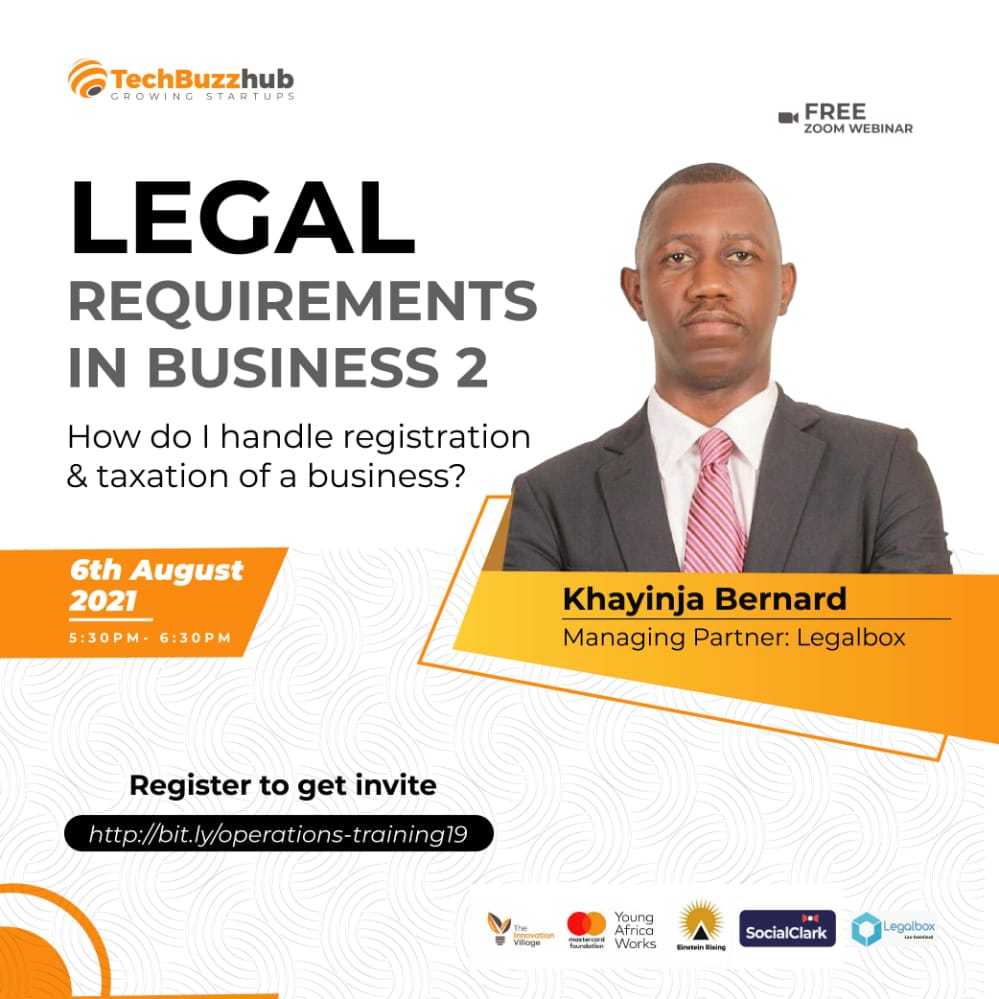MANAGING YOUR PERSONAL FINANCES – TRAINING
HOW CAN I PROTECT, SAVE AND INVEST MY MONEY?
Once again tech buzz hub brings you an interesting topic in the modern era. Managing personal finances. It is interesting because today many people are involved in the liquidated global economy where everything is monetized an it narrows down to how you handle your own cash. When you get it right then you become financially autonomous. This is the ultimate goal of the webinar. To train people how to be financially autonomous. This while training was delivered by Tech Buzz hub in partnership with Centonomys’, head pf financial manager, the one Maureen Radoli, who excellently elaborated what it means to manage your own finances using day to day examples.
What are the first things to consider when you have received your income, like a monthly salary? In financial management, what should be your first consideration given the list of expenditure that awaits you?
True you have received your income and as happy as the salary time or day is you fill like you have the whole world in your hands, looking at the money that you have. However, your state of mind should reside on thinking about yourself. Not on the selfish extravagantly way, but rather in a more appreciative way. Miss Maureen says, you always should start by paying yourself. It was you who struggled all the 30 days a month trying to get this money. Now that you have it go straight to paying yourself. The question is how?
You do that by reinvesting this money that you have just received it. Yes, I know I have surprised you. Usually when some talks about paying yourself they think about buying this expensive shoe, shirt or dress that you saw had just been introduced in the market. No there you don’t reward yourself, you’re literally increasing your expenditure which is not a good thing. You have to invest that ka money. Save and invest more. You make sure you save as much money in order to invest more.
Now when you talk about saving, it is necessary to know that you can hardly save without a goal. You must have goal for the money you are saving otherwise you end up spending the money you are saving every time a need a rises. So must have a clear GOAL, for that ka money.
How do you save irrespective of your list of expenditure?
It all goes back to your budget. Every financially autonomous person always has a budget that h/she strictly follows. The pay yourself first works well when you have a budget. An example of this budget is the A B C budget.
Where the A column stands for the necessary needs, things you cannot deal without like rent, food, education, savings among others.
Column B includes all the necessary but not important items or part of your expenditure like hairstyles change, going out, buying luxurious perfumes among others.
Column C stands for all the items that are not necessary at all in your list of expenditure. Therefore, savings shall fall in the column A. it’s a necessary and important part of our budget. This kind of budget also plays out well for the emergency fund. For you will always have some money that is not your saving that only handles emergencies that come along the way.
As per the goal for your savings, there are three major reasons as to why someone saves. Three major aims that is; to preserve your capital. In preserving your capital its actually, the money that you do not have immediate need for or use for the money.
It’s important to save according to your goal. Miss Maureen want to save money in order to start up a real estate firm/ agency. This is because she is already thinking about her retirement and it’s the way she can survive after her years of active service are done. So what is she to do, she says she has to fix her money in a bank. That means opening up a fixed account.
The other reason as to why people save is, income generation, that is to create more income on top of what you have. For example, like dealing in fixed account assets like government bonds among others. This means that at all time you must have a goal for the money you are saving.
How do we manage debt, irrespective of saving and financial management?
Actually you cannot talk about financial management and fail to talk about debt. This is because at one time you will be faced by a debt, or a number of debt from different people. And they will pose a big challenge in your priority list in comparison to your set saving GOALS.
You should always know that there is good and bad debt. The good debt is one you take for reinvesting; and the other is one you take for simply increasing your expenditure. For example; taking a loan in order to buy a range rover sport car is not a good debt. A car is not an asset, it’s more of a liability. But if you bought a piece of land put it into good productive use, then you would be using it as an asset.
- The secret to debt management is simple:
- Just pay the debt. All the debts that you owe should be paid at their respective due dates.
- Write down and track down all your debt and when they shall be due or even over. Include all the interests that those different debts hold, that you ought to pay. It will help you look for an extra income to pay off the debt. This in a way is called the snow balls effect. How does it work?
- Supposing you have debt A, B, C and they have interest as follows, 10%, 15% and 19% respectively. It will make me able to make an extra income that shall allow me to pay the debt off comfortably and which to prioritize.
Is it good to hold onto money? How do I avoid linkages in my expenditure saving ratio?
With money you have to define for it a route. Always put money where you know it will grow. Have a budget for the money you have at hand as soon as possible.
It’s also important to have two accounts affixed account and a current account. And it all goes down to discipline. Because if you are not disciplined enough financially then even when you have a fixed account it will be useless. So have your expenditure tracked by writing it down in every single detail, this will help you know your weakness and your weakest point, define a route for your money immediately you have it.
An example is guy who came to us at centonomy, and told us he could not save his money, even when he wanted to. After tracking his expenditure, he realized he spent 2 million shillings on alcohol a month. This made him make up his mind to save that money instead of spend it on drinks.
After talking in depth about saving our money, and developing a good financial discipline, the question then lies to how do we multiply that money. Where can it be reinvested to have it multiply?
Miss Maureen advises that your money can be put in investments like:
Property. Property is a good venture to start with. Don’t Buy property and let it just be there, get it productive, set up a retail shop, rent it out for business among others. There you are multiplying your income.
Stock markets. Involve yourself in stock markets. It’s an organization that makes you part of the business by enabling you invest your money in companies. The stock markets are part of capital growth; this is because your income simply keeps growing. The risks involved are high but they pay off well.
Investing in treasurer bills/bonds. These are government bonds that the government sell off to the public and once the stakes are good it buys them back. They are safe as compared to stock markets because there is security that you shall get your money back at one point. Any one planning for retirement should try this venture.
Getting into the money markets. It is a place where you put your money and it simply grows and it develops interests by compound effect.
Business. Finally, you can open up or start a business. Your business is a good way to grow your money. However, in this case you need to set for yourself a salary. Since you are also an employee of the business just as all the other employees are otherwise you may end up mixing business and personal expenditure.
Note: be careful insurances are not investments. They are simply protective vehicles for your business or asset, which may pay off at one time.
What tools can I use to map out my whole journey of financial management?
To be realistic there are no specific apps that one can rely on in order to have or be a good financial manager of your own resources and money, but you need to start from what you want, track your spending and decide to save where necessary. The whole thing is driven by what you intend to achieve at the end of the day. Your goals.
In saving there are things that are not part of your budget but are important and arise at the point in time when you have already drawn your budget. How do you deal with them irrespective of saving?
Your emergency fund must always be part of your savings. Though it is wise to separate the two in different accounts but all the same on your budget it must be included in your savings. Make sure your emergency fund is a minimum of three months of your income.
In conclusion; financial literacy is directly proportional to your future. By saving and reinvesting you are securing your own future. So its wise to plan your future before it becomes your present.
Related Posts
Leave a Reply Cancel reply
Categories
- Art (6)
- Business (22)
- Clients (2)
- Design (1)
- Entrepreneurship (22)
- Events (28)
- Innovation (8)
- Inspiration (17)
- Motivation (7)
- Startups (22)
- Tips & tricks (6)
- Uncategorized (2)






